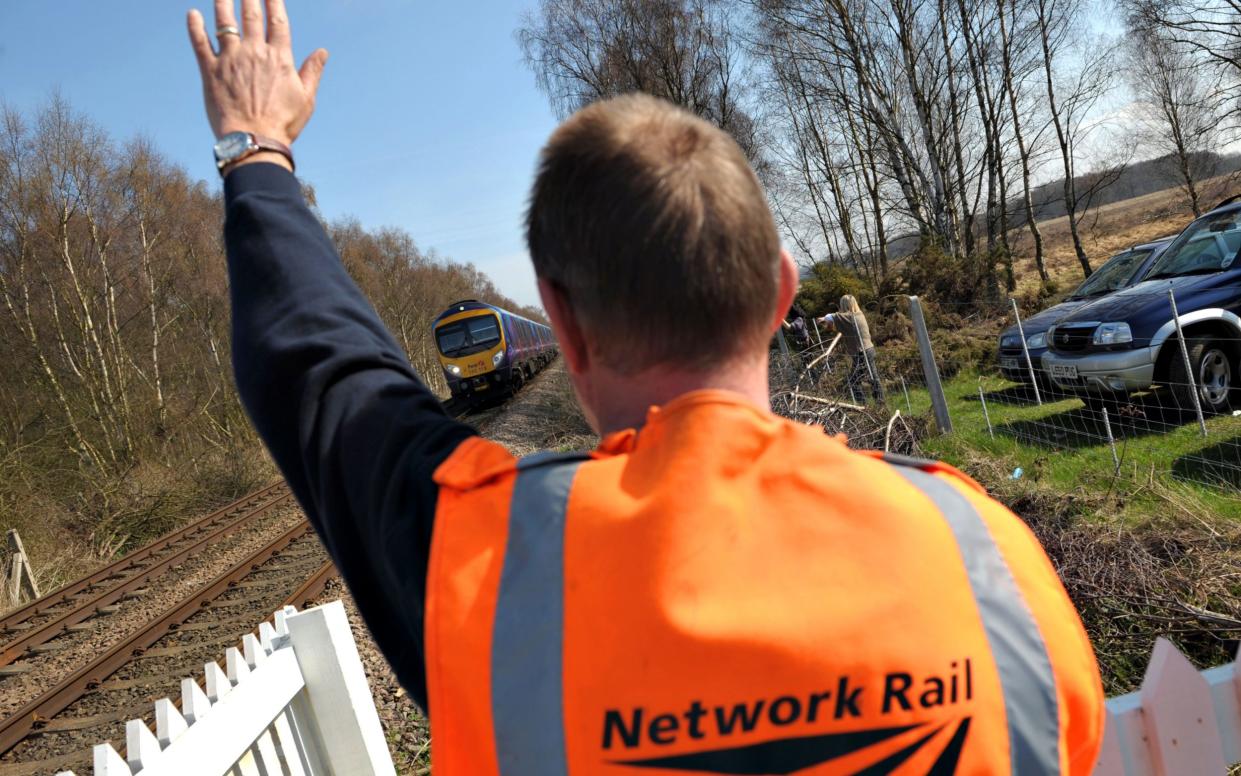State-run Network Rail marked down for nearly 60pc of passenger delays

State-run Network Rail is responsible for nearly 60 per cent of delays on the railways, it has emerged, as campaigners say Labour’s plans to nationalise the trains “won’t fool taxpayers”.
Official data showed that out of all causes of delays to trains in February, most were attributed to the state-owned infrastructure company – dwarfing every other cause of delays on the railways.
About 58 per cent of all delays caused to passenger trains were marked down to Network Rail, figures published by the company itself show.
Some 18 per cent of delays were caused by issues that “could have been prevented” such as operational issues, damage to or failure of the infrastructure of the railway.
Issues that Network Rail says it could not have foreseen, such as trespassers on the line and vehicles hitting bridges, accounted for 40 per cent of delays, and extreme weather accounted for 3 per cent.
About a quarter of all delays to passenger trains are the responsibility of train companies themselves, Network Rail’s figures showed.
Those delays are caused by problems such as staff shortages or broken-down trains that leave gaps in the timetable.
Labour pledge
Labour vowed to nationalise all passenger train services last week, promising to do so “without the taxpayer having to pay a penny in compensation” to the current private operators.
The Conservatives described Labour’s plans as “ideological”, with a minister saying last week that privatisation had led to “a doubling of the number of people using our railways”.
The TaxPayers’ Alliance said the Network Rail delay data showed ownership of the railways made little difference to how good or bad train services are.
Darwin Friend, head of research at the TaxPayers’ Alliance, said: “Renationalisation won’t fool taxpayers who for years have seen the public sector failing to deliver the basics.
“The understandable frustration of commuters with the railways is being used as an excuse for evidence-free policy-making, which will likely only make matters worse, given most of the delays are caused by the nationalised Network Rail.
“Politicians of all parties would be better off working out how to inject competition into the industry, rather than resurrecting tired policies of yesteryear.”
About 4.1 million station stops were made during February, with 81.3 per cent of trains arriving within five minutes of their scheduled times.
Nationalising the train companies is now a key plank of Labour’s election manifesto following the policy’s announcement by Louise Haigh, the shadow transport secretary.
Between 2006 and 2023 the private sector invested £14.8 billion in the rail industry, Office of Rail and Road figures show.
When the railways were privatised in the mid-1990s, it was decided that Railtrack – Network Rail’s forerunner – would be held liable for so-called “external” delays.
Network Rail said there is a difference between being held responsible for delays under industry contracts intended to discourage train companies from causing avoidable delays, and directly causing them through signal failures or other infrastructure faults under its direct control.
A Network Rail spokesman said: “Faults and failures of Network Rail’s infrastructure makes up only about 25 per day of all delays with another big chunk – external factors such as trespass, vandalism and suicides to name a but a few – saddled with the infrastructure owner as a quirk of privatisation in the 1990s.
“Much-needed rail reform will see track and train joined back together under Great British Railways, which will play a big role in helping the railway tackle delays collaboratively for the benefit of passengers and freight users.”


